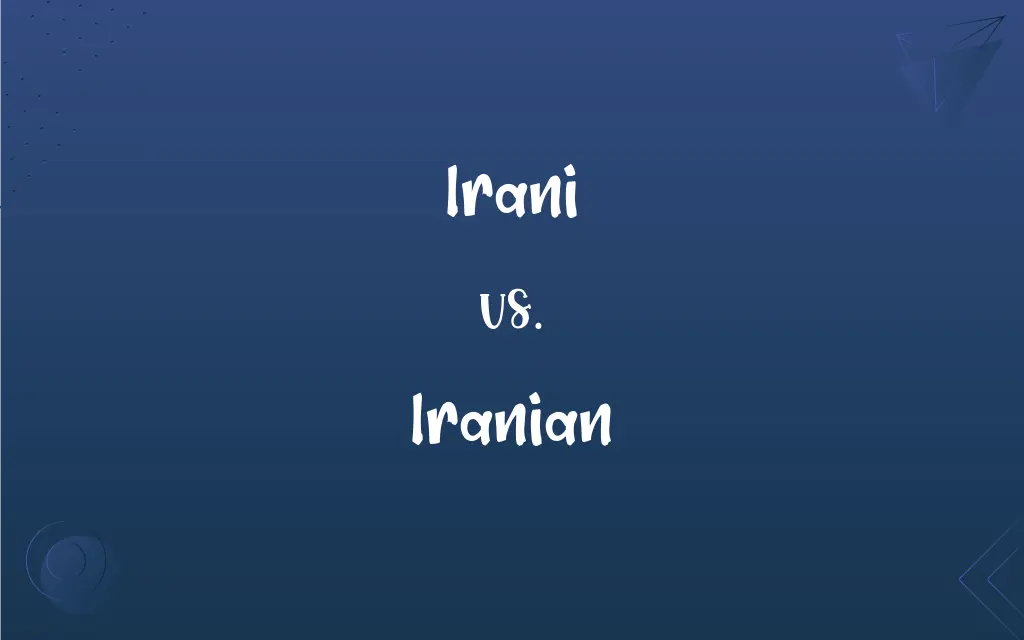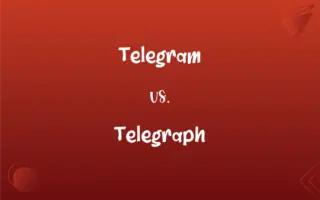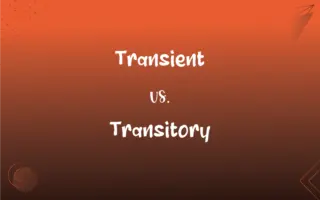Irani vs. Iranian: What's the Difference?
Edited by Harlon Moss || By Janet White || Updated on September 28, 2023
"Irani" and "Iranian" both refer to people of Iran, but "Iranian" is the widely accepted term for citizens of Iran, while "Irani" is less formal and may refer to specific ethnic or subcultural groups.

Key Differences
“Irani” and “Iranian” are terms that are associated with the people of Iran, a country in Western Asia. “Irani” is often used informally and can sometimes denote specific ethnic or subcultural groups within Iran, and may also be used to describe certain products or things from Iran. In contrast, “Iranian” is the formal and widely accepted term to describe anything related to Iran, including its citizens, culture, and products, and is recognized internationally in political and academic contexts.
While “Iranian” is broad and inclusive, serving as the general adjective for people or things from Iran, “Irani” may be more exclusive, representing specific sects or communities, such as the Zoroastrian community. “Iranian” is seen as the official and correct term in most global interactions and documentation, and it is the term that is widely used in media, academia, and international relations to refer to people from Iran. On the other hand, “Irani” may carry a more localized and colloquial feel, being used in more informal settings or to signify a deeper cultural or ethnic specificity.
In essence, the usage of “Iranian” is more prevalent and universally acknowledged as it maintains a standard formality and appropriateness in varying contexts. “Irani”, conversely, may not be universally recognized and might be perceived as informal or specific in its reference. “Iranian” is a term that promotes a unified and collective identity, acknowledging the diverse yet interconnected fabric of Iran’s populace. In contrast, the usage of “Irani” might be rooted in tradition and localized nuances, reflecting the multifaceted and rich tapestry of Iran’s cultural and ethnic composition.
The subtleties in the usage of “Irani” and “Iranian” illuminate the importance of contextual understanding. “Iranian” stands as a representative term, encapsulating the myriad aspects of Iran’s national identity and heritage. Meanwhile, “Irani” might resonate more with local dialects and traditions, serving as a testament to the regional diversities and ethnic variances within the Iranian spectrum. While “Iranian” is the accepted standard in formal discourse, the preservation of “Irani” is crucial for maintaining the intimate and indigenous dialogues that echo the varied voices of Iran’s people.
Comparison Chart
Usage
Informal and can be specific.
Formal and universally accepted term for people or things from Iran.
ADVERTISEMENT
Context
May denote specific ethnic or subcultural groups within Iran.
General adjective for anything related to Iran and its citizens.
Recognition
Less universally recognized, more localized.
Internationally recognized in political, academic, and media contexts.
Formality
Less formal and may carry localized nuances.
Maintains standard formality and is appropriate in varying contexts.
Representativeness
May represent deeper cultural or ethnic specificity.
Promotes a unified and collective identity for the people of Iran.
Irani and Iranian Definitions
Irani
Informally used to describe people or things from Iran.
The Irani cafe was known for its traditional teas.
ADVERTISEMENT
Iranian
Appropriate in varying contexts, promoting a collective identity.
Iranian cuisine is known for its diverse flavors.
Irani
Can be specific to certain ethnic or subcultural groups within Iran.
The Irani community gathered to celebrate their heritage.
Iranian
Used in international relations and academic contexts.
The Iranian delegation attended the conference.
Irani
May represent deeper cultural or ethnic specificity.
The Irani dialect was distinct and rich in tradition.
Iranian
Maintains standard formality and recognized in political contexts.
Iranian policies were discussed at the meeting.
Irani
A term rooted in tradition and localized nuances.
She enjoyed the Irani music played at the festival.
Iranian
Formal term for citizens of Iran or things from Iran.
The Iranian embassy issued a statement.
Irani
Less formal term with a more localized or colloquial feel.
He bought an Irani rug from the local market.
Iranian
Universally acknowledged and represents a unified identity.
The Iranian artist was recognized internationally.
Irani
A native or inhabitant of Iran.
Iranian
Of or relating to Iran or its people, language, or culture.
Irani
A native or inhabitant of Iran;
The majority of Irani are Persian Shiite Muslims
Iranian
A native or inhabitant of Iran.
Iranian
A person of Iranian ancestry.
Iranian
A branch of the Indo-European language family that includes Persian, Kurdish, Pashto, and other languages of Iran, Afghanistan, and western Pakistan.
Iranian
Of or pertaining to Iran.
Iranian
A native or inhabitant of Iran;
The majority of Irani are Persian Shiite Muslims
Iranian
The modern Persian language spoken in Iran
Iranian
Of or relating to Iran or its people or language or culture;
Iranian mountains
Iranian security police
FAQs
Is "Iranian" more formal than "Irani"?
Yes, "Iranian" is formal and universally acknowledged.
Is "Irani" a recognized term internationally?
"Irani" is less universally recognized compared to "Iranian".
Does "Iranian" represent a unified and collective identity?
Yes, "Iranian" promotes a unified and collective identity of Iran’s populace.
Are "Irani" and "Iranian" interchangeable?
"Iranian" is the widely accepted term, while "Irani" is more informal and specific.
Is "Iranian" used in political and academic contexts?
Yes, "Iranian" is the recognized term in such formal contexts.
Can "Irani" refer to specific communities within Iran?
Yes, "Irani" can denote specific ethnic or subcultural groups.
Is "Iranian" prevalent in media and global interactions?
Yes, "Iranian" is the prevalent and standard term in such contexts.
Is "Irani" rooted in tradition and localized dialects?
Yes, "Irani" may be more rooted in local tradition and dialects.
Does "Irani" carry more localized nuances?
Yes, "Irani" may have more localized and colloquial nuances.
Can "Iranian" be used to describe anything related to Iran?
Yes, "Iranian" is a broad term to describe anything related to Iran.
Is "Irani" less formal in usage?
Yes, "Irani" is considered less formal and is more specific.
Is "Iranian" accepted in international relations discourse?
Yes, "Iranian" is the accepted and recognized term in such discourse.
Does "Irani" resonate more with indigenous dialogues?
Yes, "Irani" might resonate more with intimate and indigenous dialogues.
Can "Irani" denote deeper cultural specificity?
Yes, "Irani" can represent deeper cultural or ethnic specificity.
Is "Iranian" used in formal and varying contexts?
Yes, "Iranian" maintains standard formality and is appropriate in varying contexts.
About Author
Written by
Janet WhiteJanet White has been an esteemed writer and blogger for Difference Wiki. Holding a Master's degree in Science and Medical Journalism from the prestigious Boston University, she has consistently demonstrated her expertise and passion for her field. When she's not immersed in her work, Janet relishes her time exercising, delving into a good book, and cherishing moments with friends and family.
Edited by
Harlon MossHarlon is a seasoned quality moderator and accomplished content writer for Difference Wiki. An alumnus of the prestigious University of California, he earned his degree in Computer Science. Leveraging his academic background, Harlon brings a meticulous and informed perspective to his work, ensuring content accuracy and excellence.































































